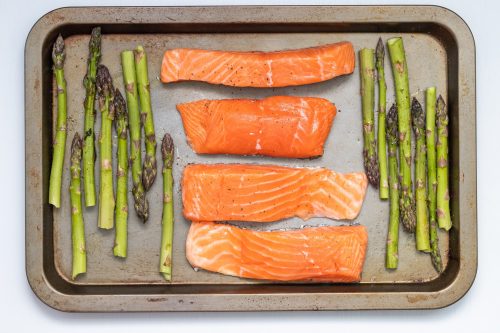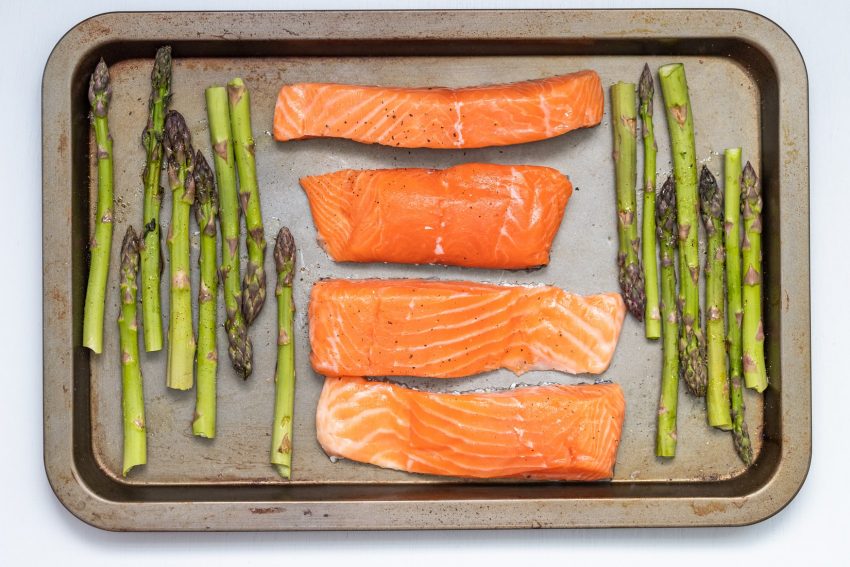No matter how cliché you may find it, we truly are what we eat. To live a healthy lifestyle, we have to make sure we eat a lot of fresh, whole foods. But, what’s life without a glass of wine with a delicious meal or a piece of birthday cake at your daughter’s birthday party? The key is finding balance and adhering to a healthy diet but allowing yourself to splurge from time to time without feeling guilty.
Bring the Freshness to You
Seafood is low-calorie and chock-full of healthy fats and nutrients— not to mention, it’s delicious! Fresh seafood is filled with omega-3 fatty acids and other nutrients, including vitamin D and B2. Fish is also a great source of minerals like iron, iodine, magnesium, zinc, and potassium. The American Heart Association recommends people should fish at least two times per week as part of a healthy, balanced diet. Several studies even link fish consumption to longer lives, decreased chances of Alzheimer’s disease, and improved mood.

Practice the 80-20 Rule
If you feel deprived, chances are it will be extremely difficult to stick to a healthy eating plan. That’s why experts recommend following the 80-20 rule. This means that 80% of your meals, snacks, and drinks are clean, fresh, whole foods. But, you have room for 20% of your diet to be your favorite junk foods (or drinks!).
Remember Portion Control
Just because you eat fresh, whole foods doesn’t mean you can stuff your face until you’re blue in the face. No matter what kind of food you overeat, even if it’s healthy, you will likely gain weight. So, keep your portions under control. Portion control also allows you to balance your diet. There’s nothing wrong with having one serving size of Doritos while you watch the big game, or one serving of red wine with a great steak. Portion control allows you to take limitations off what you’re eating to achieve balance—and satisfaction.
Incorporate All Food Groups
Consuming a healthy, balanced diet means you don’t have to give up any food group. In fact, eating a balanced diet means consuming foods from all five food groups:
Vegetables
The USDA recommends that people eat vegetables from each of the five subgroups every week:
- Leafy greens
- Red/orange vegetables
- Starchy vegetables
- Beans and peas
- Other vegetables like zucchini and eggplant
You can eat veggies raw or cooked. We recommend throwing lots of vegetables in your pasta, stews, and soups.
Fruits
A balanced diet includes lots of fruit. Nutrition experts recommend eating whole fruits instead of getting your fruit from juice, which can be chock full of sugar.
Grains
The grains food group contains two subgroups: refined grains and whole grains. Whole grains include all three components of the grain: the germ, bran, and endosperm. These have less of an effect on our blood sugar because the body breaks these down slowly. Whole grains also contain more fiber and protein than refined grains.
Refined grains are processed and don’t contain the three above-mentioned parts. Refined grains have less protein and fiber, meaning they often cause blood sugar to spike. Guidelines suggest grains should make up a quarter of a person’s diet, and half of the grains should be whole grains. Healthy whole grains include:
- Oats
- Quinoa
- Barkley
- Buckwheat
- Brown rice
Protein
Protein is another important component of a balanced diet, and it should make up a quarter of a person’s plate. Healthy protein choices include:
- Chicken
- Turkey
- Fish
- Lean beef and pork
- Beans, peas, legumes
Dairy
Dairy is a vital source of calcium. The USDA recommends consuming low-fat dairy when possible, including:
- Cottage cheese or ricotta
- Low-fat milk
- Yogurt
- Soy milk
Lactose intolerant people should opt for low-lactose or lactose-free products. They can also enjoy soy-based calcium sources.
A balanced diet is essential to supply your body with the nutrients it needs to work effectively. When you lack balanced nutrition, your body is more prone to disease, infection, fatigue, and overall low performance. Kids who don’t eat a balanced diet can face growth and developmental issues, poor performance at school, and frequent infections. Follow our above tips to achieve a healthy, happy, and balanced lifestyle for your whole family.


